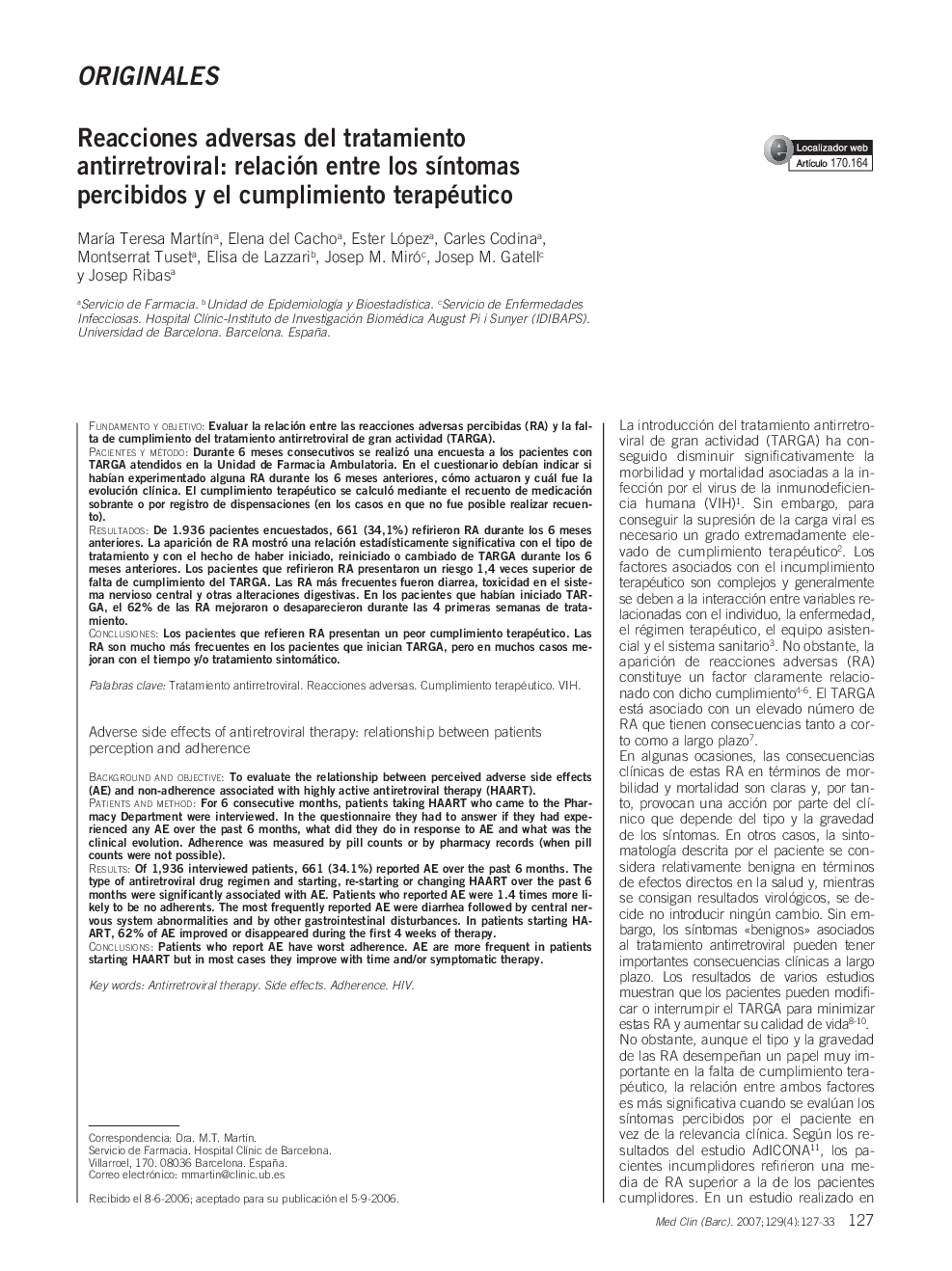| Article ID | Journal | Published Year | Pages | File Type |
|---|---|---|---|---|
| 3802396 | Medicina Clínica | 2007 | 7 Pages |
Fundamento y objetivoEvaluar la relación entre las reacciones adversas percibidas (RA) y la falta de cumplimiento del tratamiento antirretroviral de gran actividad (TARGA).Pacientes y métodoDurante 6 meses consecutivos se realizó una encuesta a los pacientes con TARGA atendidos en la Unidad de Farmacia Ambulatoria. En el cuestionario debÃan indicar si habÃan experimentado alguna RA durante los 6 meses anteriores, cómo actuaron y cuál fue la evolución clÃnica. El cumplimiento terapéutico se calculó mediante el recuento de medicación sobrante o por registro de dispensaciones (en los casos en que no fue posible realizar recuento).ResultadosDe 1.936 pacientes encuestados, 661 (34,1%) refirieron RA durante los 6 meses anteriores. La aparición de RA mostró una relación estadÃsticamente significativa con el tipo de tratamiento y con el hecho de haber iniciado, reiniciado o cambiado de TARGA durante los 6 meses anteriores. Los pacientes que refirieron RA presentaron un riesgo 1,4 veces superior de falta de cumplimiento del TARGA. Las RA más frecuentes fueron diarrea, toxicidad en el sistema nervioso central y otras alteraciones digestivas. En los pacientes que habÃan iniciado TARGA, el 62% de las RA mejoraron o desaparecieron durante las 4 primeras semanas de tratamiento.ConclusionesLos pacientes que refieren RA presentan un peor cumplimiento terapéutico. Las RA son mucho más frecuentes en los pacientes que inician TARGA, pero en muchos casos mejoran con el tiempo y/o tratamiento sintomático.
Background and objectiveTo evaluate the relationship between perceived adverse side effects (AE) and non-adherence associated with highly active antiretroviral therapy (HAART).Patients and methodFor 6 consecutive months, patients taking HAART who came to the Pharmacy Department were interviewed. In the questionnaire they had to answer if they had experienced any AE over the past 6 months, what did they do in response to AE and what was the clinical evolution. Adherence was measured by pill counts or by pharmacy records (when pill counts were not possible).ResultsOf 1,936 interviewed patients, 661 (34.1%) reported AE over the past 6 months. The type of antiretroviral drug regimen and starting, re-starting or changing HAART over the past 6 months were significantly associated with AE. Patients who reported AE were 1.4 times more likely to be no adherents. The most frequently reported AE were diarrhea followed by central nervous system abnormalities and by other gastrointestinal disturbances. In patients starting HAART, 62% of AE improved or disappeared during the first 4 weeks of therapy.ConclusionsPatients who report AE have worst adherence. AE are more frequent in patients starting HAART but in most cases they improve with time and/or symptomatic therapy.
